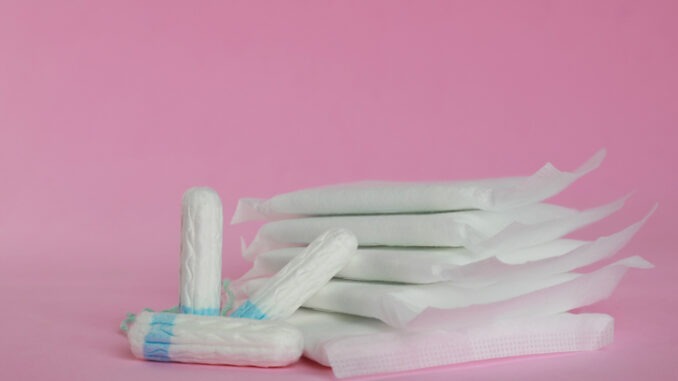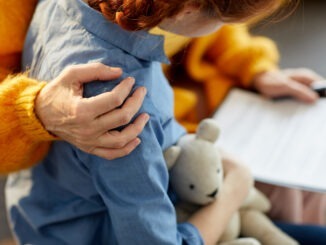As reported by BBC News. as the government-funded scheme faces potential expiration in 2024, campaigners emphasise the critical need to combat period poverty amidst rising living costs
The government-funded service began in 2020 and since then it has been used by 99% of England’s secondary schools.
Campaigners say demand for products will continue to rise due to the cost of living crisis.
Alvina Appleton, from Hammersmith, founded the charity Flow Happy in 2023 after she found it hard to afford period products as a new mum.
She told BBC London that after moving to a new borough, she was unaware of what services were available to help and even had to use her child’s nappy as a “makeshift pad” at one point.
“My own experience of not being able to afford basic necessities ignited the fire in my belly,” Ms Appleton said.
Flow Happy provides free period products in libraries and community centres across 13 of London’s boroughs, as well as offering wellbeing classes and educational workshops.
Since its services were expanded in October 2023, the charity has distributed over 200,000 period products.
Ms Appleton said that the news of the government’s free period product scheme potentially coming to an end was “really disheartening”.
“We already know that period poverty has an impact on your health, both physically and mentally,” Ms Appleton said, adding that children often skipped school because their parents had to choose between food and period products.
“With the cost of living and prices going up, numbers will only continue to rise.”
The charity Bloody Good Period is based in London and also provides services across England.
The organisation is also calling for the scheme to be extended, seeing its end as “a big step backwards” in the fight against period poverty.
Development director Elysha Paige, said that since the charity was founded in 2016, “demand has consistently increased”, with the cost of living crisis making things even more difficult for those already struggling.
She added that while the scheme was “really positive” and “showed some commitment” from the government, more focus was needed to be placed on the role that education could play to combat period poverty.
“Uptake of the scheme in schools is impacted by how confident pupils are to use it”, Ms Paige said, adding that many students did not know where to access free period products in schools, or felt embarrassed to ask the question.
“Period products should be freely available everywhere – schools, workplaces and other areas in the community.”
A Department for Education spokesperson added: “Our period product scheme provides girls and women with a wide choice of period products for free when they need them in their place of study.
“Since we launched the scheme in January 2020, 99% of secondary schools, 94% of 16-19 organisations and 75% of primary schools have placed orders. “





Be the first to comment